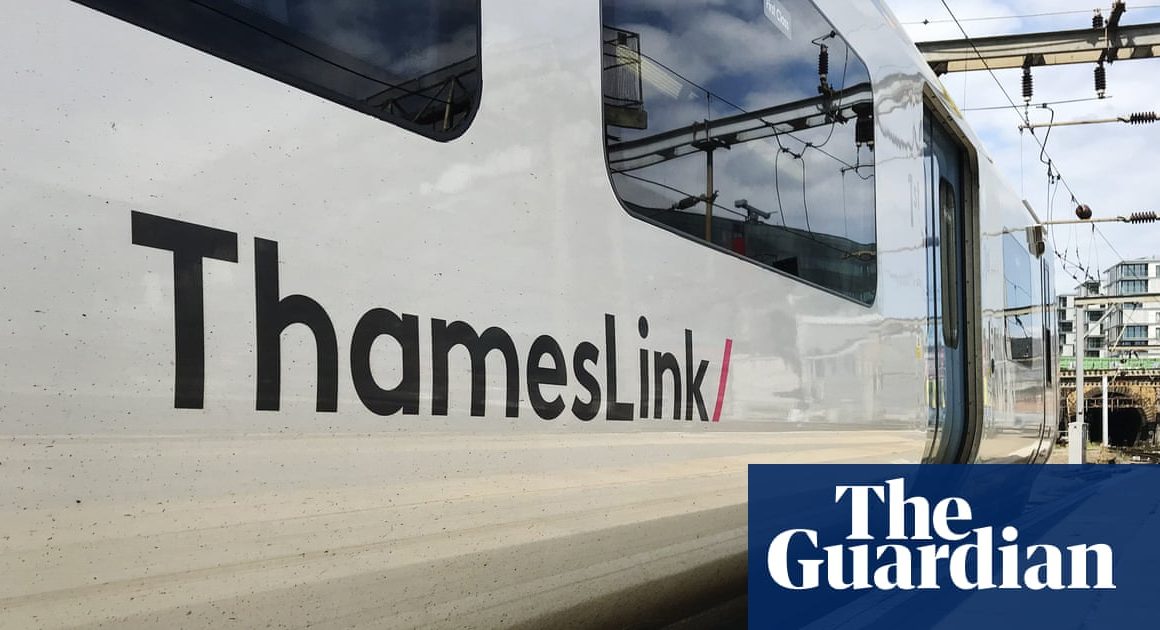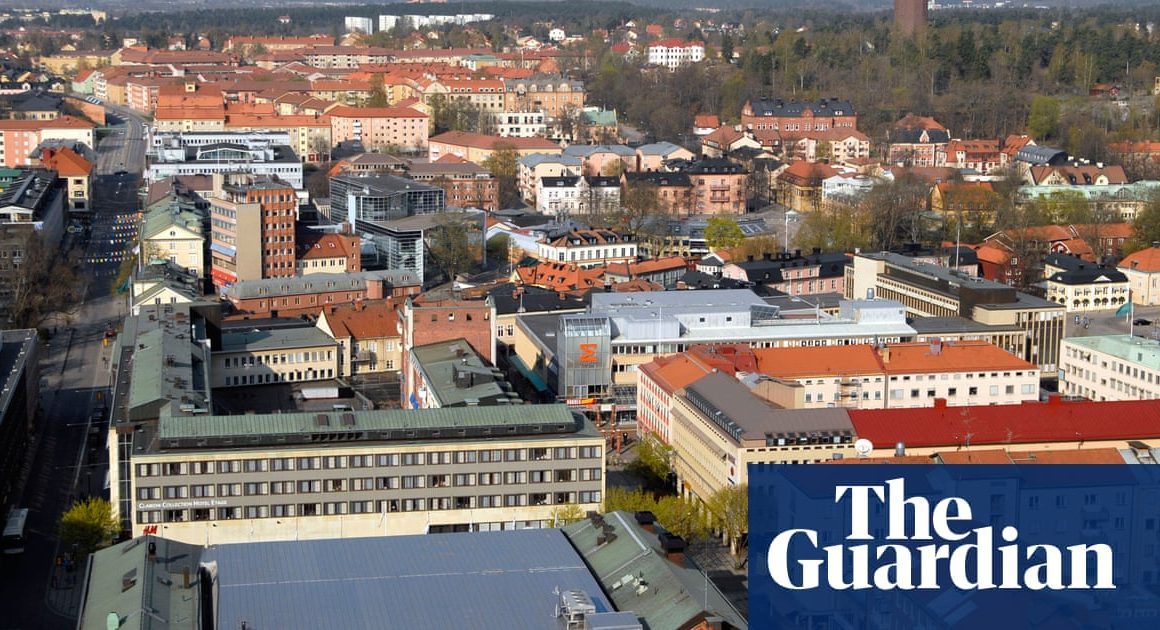Health secretary: government making progress on NHS waiting lists in England
Health secretary Victoria Atkins has claimed the government is making progress on waiting lists.
She told listeners to Times Radio:
Weâve seen now for four months in a row a reduction in waiting lists. That is a significant achievement, particularly when it is against the background of industrial action by junior doctors.
We have seen waiting lists fall, we have an unrelenting commitment, determination, to reduce yet further those backlogs and we are seeing progress.
Across the country there are different achievements, across the country different trusts managing to manage their waiting lists and what we are trying to do is spread that good best practice across the country incentivising trusts so that they are dealing with their backlogs but also importantly meeting the targets for people who are entering the system today and next week and so on.
Health is a devolved matter, and the Westminster government is only responsible for the NHS in England. Cutting waiting lists was one of Rishi Sunakâs five key pledges announced in January 2023, and was one of several which he failed to meet. The latest NHS waiting list data is due to be published by NHS England at 9.30am.
Key events
Back on migration for a second, and home secretary James Cleverly has issued a video statement claiming that the government is delivering âthe biggest ever cut to migration numbersâ.
In it, he says:
At the end of last year, we promised to change the migration system to deliver the biggest ever cut to migration numbers. And today, weâve enacted the final part of that plan.
Taken together, the measures weâve introduced will radically reduce legal migration. 300,000 people who arrived in the UK last year, would no longer be eligible to do so under these new rules.
Weâve tightened the rules around overseas students, the vast majority of whom can now no longer bring dependents to the UK whilst they study.
Weâve reformed the health and social care visa, introducing more safeguards to protect this route from abuse and removing the ability of care workers to bring dependents.
And weâve also raised the skilled worker visa salary threshold by 48%, and replaced the shortage occupation list to encourage British businesses to invest in a British workforce, and also to prevent wages being undercut by overseas workers.
And finally, weâve raised the family visa minimum income requirement, ensuring that people can only bring dependents to the UK that they can financially support.
It is a firm approach, but it is a fair approach and we are delivering the change that we promised, and which the British people expected.
At the end of last year, we promised to change the migration system, to deliver the biggest-ever cut to migration.
Today we have met that commitment. pic.twitter.com/TrKUwwlfUY
— James Cleverlyð¬ð§ (@JamesCleverly) April 11, 2024
The last couple of days at the Post Office Horizon IT inquiry have seen some very gentle questioning of key figures in the campaign for justice for subpostmasters like Alan Bates and former MP James Arbuthnot. The chair of the inquiry, Wyn Williams, was even moved to warn people attending the hearing not to applaud at the end of their testimonies. I suspect the tone will be rather different in the next two days, when it will be Post Office and Royal Mail bosses giving evidence. That starts at 10am and I will bring you the key moments.
If you missed the last couple of days, here is what happened â¦
37 housing and homelessness charities have written to home secretary James Cleverly warning that new government legislation risks criminalising homelessness.
Matt Downie, chief executive of Crisis, said âThe government cites a moral imperative to end rough sleeping, yet these new measures will make it more difficult to do so. They will punish people for having nowhere else to go and push them further away from support. The first and easiest thing the home secretary can do is listen to the concerns of these experienced organisations and remove these cruel and counterproductive measures.â
Speaking about the plans during the media round this morning, health secretary Victoria Atkins said:
We have been very, very clear. What weâre trying to target are those criminal gangs that make a living out of intimidating people.
We want to stop some of the aggressive begging that can happen around cash points, for example.
But we do not and will not criminalise people who donât have a home. Absolutely not. That is not what this bill is about.
There are real vulnerabilities here that we want to support. And this is not about criminalising people who are homeless.
The proposals have been criticised for loose language in the drafting. Police in England and Wales are to be given powers to fine or move on rough sleepers deemed to be causing a ânuisanceâ.
The bill defines âsomething that is a nuisanceâ in relation to a person who âcauses or does something capable of causing damageâ. A section of the criminal justice bill defines that damage as including âexcessive noise, smellsâ. Education secretary Gillian Keegan was forced to clarify that people wouldnât be arrested just because they smell.
Campaigners have said new visa rules are destroying the idea that the UK is a place where families can âthriveâ.
As the minimum income for family visas rose by more than £10,000 to £29,000 from Thursday, the organisation Reunite Families UK claimed the values of family and love are being treated as âas yet another political football to be sacrificed in order to receive better poll or electoral resultsâ.
The minimum income requirement will rise further to £38,700 by early 2025.
Caroline Coombs, co-founder of Reunite Families UK, said people are feeling âpunishedâ and âexcludedâ by the new rules.
Coombs said: âThis increase, together with the ones which will come into force in the next 12 months destroy the notion of the UK as a place where families can thrive.
She added âWe are dealing with a community of members who are punished and feel excluded and discriminated by their own government only because they fell in love with somebody from abroad and do not or cannot earn the âright amountâ to be able to love whoever they choose.â
In advance of the publication of NHS England waiting lists, health secretary Victoria Atkins has said ânobody pretended at the timeâ that it would be easy to bring waiting lists down.
She also blamed industrial action as a factor in Rishi Sunak failing to meet his key pledge on waiting lists.
She told viewers of ITVâs Good Morning Britain:
We know the pain and the anguish that waiting lists cause people â none of us want people to be waiting for the treatments they need. And thatâs why the prime minister set it as one of his five priorities, and nobody pretended at the time that this was going to be easy to achieve.
Now, in fairness, in the last four months we have seen a reduction in waiting lists and that is even though weâve had, sadly, industrial action â particularly damaging industrial action â by junior doctors in January, which of course is the busiest time for the NHS coming out of Christmas.
But despite that weâve seen this fall in waiting lists, and I am focused relentlessly on trying to improve waiting lists times.
With junior doctors, my message has always been: âLook, if you work with Government, if you come to the table with reasonable expectations, as the consultants did, we will be able to find a deal.â
Labourâs big announcement today is a plan to improve bus services in England, with shadow transport secretary Louise Haigh promising to end âfour decades of disastrous deregulationâ.
She said:
Reliable, affordable and regular buses are the difference between opportunity and isolation for millions of people across the country.
Four decades of disastrous deregulation of Britainâs buses has robbed communities of a say over the vital services that they depend on, instead handing power to unaccountable private operators who have slashed services.
Labour will give every community the power to take back control of their bus services, and will support local leaders to deliver better buses, faster.
Labourâs plans will create and save vital routes and services, end todayâs postcode lottery of bus services, and kickstart a revival of bus services across England.
The announcement was given short shrift by transport minister Guy Opperman, who said âLabourâs bus nationalisation policy wonât work but will force huge council tax hikes. Because Rishi Sunak and the Government took the long-term decision to cancel HS2 phase 2, we have been able to extend the £2 bus fare cap and invest £1bn in bus services across the Midlands and the North.â
The NHS England data today comes against a backdrop of persistently high waiting lists and public discontent with the service.
At the end of last month, Denis Campbell reported that public satisfaction with the NHS has fallen to its lowest ever level, with long delays to access care the biggest source of deepening frustration, a study has shown.
At the beginning of April, a new estimate suggested almost 14,000 people died needlessly last year in England while waiting in A&E for up to 12 hours.
ONS figures have suggested that the NHS data may be underestimating waiting lists by up to two million people.
Health secretary: government making progress on NHS waiting lists in England
Health secretary Victoria Atkins has claimed the government is making progress on waiting lists.
She told listeners to Times Radio:
Weâve seen now for four months in a row a reduction in waiting lists. That is a significant achievement, particularly when it is against the background of industrial action by junior doctors.
We have seen waiting lists fall, we have an unrelenting commitment, determination, to reduce yet further those backlogs and we are seeing progress.
Across the country there are different achievements, across the country different trusts managing to manage their waiting lists and what we are trying to do is spread that good best practice across the country incentivising trusts so that they are dealing with their backlogs but also importantly meeting the targets for people who are entering the system today and next week and so on.
Health is a devolved matter, and the Westminster government is only responsible for the NHS in England. Cutting waiting lists was one of Rishi Sunakâs five key pledges announced in January 2023, and was one of several which he failed to meet. The latest NHS waiting list data is due to be published by NHS England at 9.30am.
Welcome and opening summary â¦
Good morning. Health secretary Victoria Atkins has been on the media round today, touting government progress with NHS waiting lists in England. New figures will be published today. More of that in a moment. Here are the headlines â¦
-
Rishi Sunak spent £2m on focus groups for âeat out to help outâ scheme during the pandemic
-
The government has insisted it isnât criminalising homelessness as a number of charities hit out at new plans
-
English schools could lose £1bn by 2030 as pupil numbers fall
-
A Royal Institution of Chartered Surveyors (Rics) survey showed property prices stabilised in March after months of decline, and are expected to return to growth within the next 12 months
There is some committee business scheduled at Stormont, but Westminster, the Scottish parliament and the Senedd remain on recess.
The Post Office Horizon IT inquiry continues. Former managing director of the Post Office David Smith, and former chair of Post Office Ltd Michael Hodgkinson appear. I will bring you the key lines.
It is Martin Belam with you again today. I do try to read all your comments, and dip into them where I think I can be helpful, but if you want to get my attention the best way is to email me â martin.belam@theguardian.com â especially if you have spotted my inevitable errors and typos, or you think Iâve missed something important.










